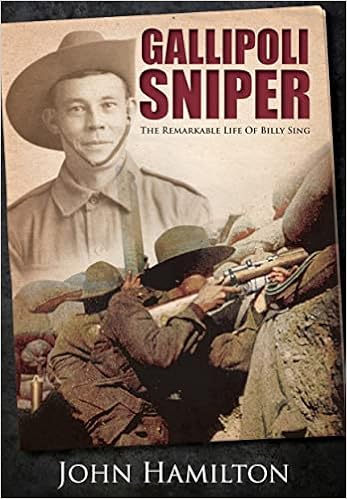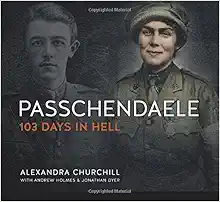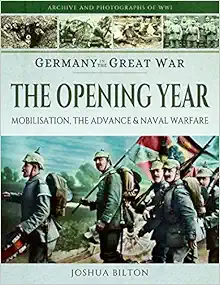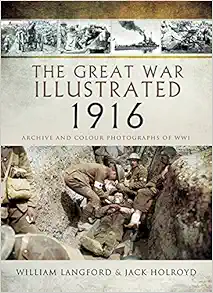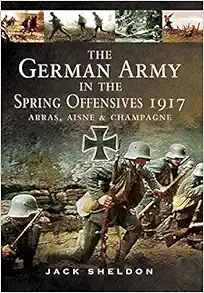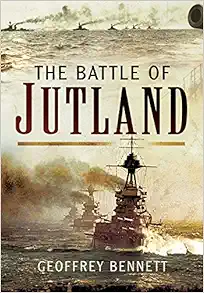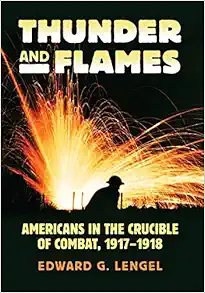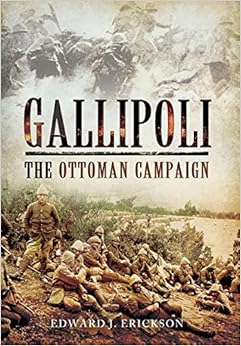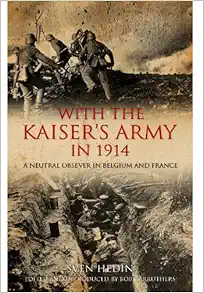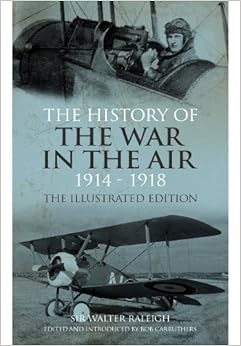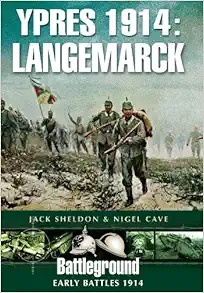Idealist and Realists views on the Great War
By Vernon Yates
Post World War I: Fourteen Points and the Treaty of Versailles
The fighting of World War I (WWI) brought to European countries vast amounts of destruction and death to its people and to the established ruling realms of the time. The war forever changed the views of the common citizen and the role of government to protect them. No longer would secret treaties and imperialists views be tolerated in government functions. The feelings and competing agendas of both sides that fought WWI now placed their trust into the President Woodrow Wilson’s Fourteen Points and The Treaty of Versailles. This paper will compare and contrast the different roles that Idealist and Realists views played with ending the war and seeking a just peace for all sides in the lens of a Realists and Idealists.
Even before the guns of war had fired during the Great War there was fighting between the Germans and French in the Franco-Prussian War of 1870-71 on various territorial claims by both countries during this period. This war was fought on both sides through the eyes of Realist in the form of Napoleon III of France and Otto von Bismarck of Prussian. Both of these leaders were very interested in the notion of national power by focusing on hard power in the effort to seek out their countries place among European countries.
Unification
The Realist in Bismarck’s actions of 1870 sought out the unification of German speaking peoples in the various fiefdoms. He did this by creating and maintained a professional military force that embraced and sought change in its ranks. The Prussian military was also a learning organization that continued updating its tactics much as a Realist would expected and demand. This is strategy is demonstrated in the Prussians ability by setting up the first truly ground staff that would answer to the needs of the commander on the ground. This Realist preparation by the Prussians would cause major problems for the French during the Franco-Prussian War and WWI in the future.
As for the French, they failed to understand the situation and the very threat that faced them in the form of the Prussians. They depended more on the Gaelic ghost of the Elder Napoleon and bit of Elan to win the war. This none Realist approached to planning and strategic power resulted in Frances’s total defeat. The Treaty of Frankfurt chiseled out the harsh demands placed on the French by Bismarck and his new Germany Empire. This defeat of the French allowed Alsace-Lorraine to be ceded to Germany and demanded war payments to be placed on the French. We should have to understand the constant alarms of fresh aggression, which France had suffered since 1870 (Hart, 1964). Further humiliation allowed for the Germans to march in a victory parade through Paris, to let the citizens of France known they not only lost but they are a conquered people.
Presiding the Franco-Prussian War by forty-three years would be another attempt to force actions on the field of battle through the eyes and practice of Realists. This action would come to be called the Great War and later simply WWI. In this short period since the Franco-Prussian War both France and Germany, continue to plan and scheme on ways to check each other’s security goals.
The Schlieffen Plan
On the eve of WWI, the Germans had been working on the goal of pushing the French threat further from their border. And of course, the French sought to recover the lost lands of Alsace-Lorraine at any cost to the nation. Realist and their doctrine influenced both countries as they sought to dominate the other on the play field that was Europe. The Germans for their part was further hoping to further tip the balance of power in their favor by successfully executing The Schlieffen Plan. Count Alfred von Schlieffen authored this plan in the decade before the war even started. This plan called for swift mobilization of the German forces to include the reservists to meet any threats during this critical time. The Plan called for the German forces to attack through the then neutral country of Belgium and destroy French forces from behind. To move a single combat ready German regular army corps from its depot its deployment area necessitated 280 trains (David, 1987). Like any good Realist, the Germans took into account the huge Army that was to the East of its borders in the form of the Russians. To deliver the knockout punch to both threats the Germans focused all of its elements of power toward the French at the start of the fighting. The Realist inside the German High Command were almost able to deliver the knockout punch on both the Eastern and Western fronts, but came up short due to several unexpected developments. They failed to take into account the heavy resistance the little weak country of Belgium would put up as they enter their country. This resistance slowed the invasion timeline down allowing for the French and British to regroup after earlier defeats during the invasion by the Germans. This failure to keep with describe timeline of the attack would lead to the term of trench warfare on the Western Front. The plan was also in jeopardy because the Russians were able to get their Army moving West to cross the German borders faster than thought possible. From the view of a Realist, the Germans moved immediately and acted with a violence in the defeat and humiliation of the Russian hordes coming from the East.
After the Germans and their Schlieffen Plan ran out of steam during the push to Paris it created the dreaded trench warfare on the Western Front that has come to symbolize carnage of war. The Germans now faced the British, French, Russians, and the annoying insurgents in deadly fight of survival. It would have been now that the Idealist would have seemed to be in environment that they understood and took action to end the war. This would not be the case since both sides had committed to violence to secure and expand their borders. Further restricting any movements of the Idealists to promote a cease-fire was the different viewpoints of this truly global war that was the Western Front. At this, time the Germans still felt that they could come out on top of their main target the French with better tactics and technology. The French for their part felt that must and would regain the lost lands of Alsace-Lorraine. In addition, the French sought to restore their honor as the holders of the legacy of Charles “The Hammer” Martel. Also stopping any attempt of the Idealist to attempt peace talks was the strange alliances and secret treaties that forge these countries in the killing fields of Europe.
War Starts
The assassination of Archduke Franz Ferdinand of Austria-Hungary is the official start of WWI as far as the history books are concerned. If this was, the cause it would seemed that the cooler heads would have prevailed and at the same time making, the task of the Idealist much easier to get peace negotiations started. The obstacles that any reference to the position of an Idealist would have had come in the form of family ties and secret agreements of Europe. Most of the royal houses of Europe all trace their family relations back to Queen Victoria of England. These blood ties include the Kaiser of Germany, Czar of Russia, and King George V of England, which were key player throughout WWI. Also, lesser blood relatives from Queen Victoria include princess that married in to royal houses of Italy, Denmark, and Catholic Spain. These royal families were about one thing and that was the survival of their reign and power at the cost of other royals. These families took their family feud and made it part of everyone else’s fight across Europe. This blood feud of spoiled brats made it practical impossible for any traction that a Idealist might be able to make toward peace. It was a family fight that went global and no type of organization had been founded to aid the Idealist and their views of cooperation.
Further efforts to stymie the Idealist and the thirst for cooperation came in the form of the German Army and its reversal to accept defeat from its enemy the French. The German Army showed its true brilliance by refusing to accept defeat and to allow a dictated term. They knew the French would seek to organize world opinion against them and take back their spoils from the Franco-Prussian War of 1871. The Germans had no choice but to continue the fight in the hostile environment that faced them and they helped to create. To push back against the anarchic outcome that the French had most surly prepared for them, the German went back to school.
Learning Organization
The German Army became a learning organization that embraced the need to change and relearn new tactics. They embraced the Realists views, focused on improving their military strategy, and brought the average Soldier in on their quest to win. From the year, 1914 to 1917 there was no great victories for either side on the Western Front. There were mass infantry and cavalry charges on a grand scale that had worked two previous generations before technology. Now these type of tactics only cause suffering and death for Soldiers attempting to use these in operations. To ensure the chance of victory the Germans brought in General Erich Ludendorff to lead the war effort. Ludendorff’s approach was pure Realist in his effort to win the war, because for the first time he incorporated a bottom up approach to beat his fellow nations-state. No longer would the Generals pass judgement and direct operations without being on the ground. Ludendorff demanded that the force be flexible and have the will to change. Also, Ludendorff demanded that all suggestions and ideas would be considered regardless of the source are the rank of the Soldiers suggested them. Time was not a friend of the Germans and Ludendorff knew this because there were
The relearning of the Army by Ludendorff helped to create a more dynamic force than had left the fields of 1916. The first break through on how the Realist Ludendorff would deal with the struggle of power was to create a tactic called Elastic Defense in Depth. This had some interested parts to it like relying on firepower; retreats are ok, keep the initiative, and defend in depth. This might have seen like nothing earth shattering but it was and Ludendorff understood this could cause the war to end on better terms to the Germans with no loss of lands. Another reason for Ludendorff’s optimism was because the French and British were having mass protests to end the war and they were seeking a joint declaration on the lines of Idealist. Ludendorff wanted to destroy any collective enemy outcome of the war before the Americans came on the scene.
This elastic defense called for several unique things that the French would never do in there on formations. The first was its ok to lose land against the enemy if meant saving your force. In addition, if this action allowed for a better outcome at a later day it would be justified. Pushing thousands of troops across the front lines of the enemy would no longer be required. The attacking forces would rely on coordinated firepower to dislodge and kill enemy troops while avoiding the same fate. The German trenches would no longer be manned at the forward trenches. They would now be lightly fielded with troops to observe enemy troop movements and to direct artillery on targets of opportunity. The most important change would be to keep the pressure on the French and to not let any attacking action to stall in the trenches. To ensure that victory came about through the elastic defense there was an offensive element added by the Germans. Germans created a force that would lead attacks on enemy trenches in the form of raids that came by the new troops called Storm Troops. The heart of the new tactics was the reliance upon individual initiative at the lowest echelon of the attacking force and decentralization of authority (Griess, 2003). This new set of troops had been trained to better embrace small unit leadership and to include specific mission orders. These troops understood their struggle and outcome was truly the end state of dominating others in a Realist view.
These new tactics did knock the British and the French back with these new techniques of warfare. But it also took a toll on the Germans since they had been fighting on two fronts for over three years with little outside help from the bumbling Austrians. The one thing that Ludendorff feared most was now just starting land on the coast of France and that was the American Expeditionary Force (AEF). For all the effort, that Germany made it still would be at the mercy of mad Europeans and the Idealist from America.
The war became unwinnable for the Germans due in part to the sheer weight and numbers of fresh American troops being sent into battle against the Germans. The numbers were just too much for the Germans to push back and defeat. The end of the war was near but it was still unsure, the outcome.
President Wilson
The Idealist and President of the United States Woodrow Wilson put forth his plan to arrive at a just end of the war for everyone to include the Germans. This proposal of Wilson has had an Idealist view based on fourteen points of sheer utopia. Wilson believed that his points would help to do away with secret treaties, alliances, and agreements between countries. These very type of agreements gave false hope to the countries to wage war in the first place. No more secrets would be need because only open diplomacy would be used to deal with other countries. Free navigations of the seas and open trade across the globe would ensure each country had a chance to succeed and grow their local economies. Every the Idealist Wilson felt that all land claims of colonies must be made with the best interest of the local peoples and not their colonial masters. The region of Alsace-Lorraine also had a spot in Wilson fourteen points since this dispute went back to the Franco-Prussian War and caused many of the hostilities that caused the war. Wilson deemed that the region of Alsace-Lorraine would be returned to the French who lost the land fifty years before this war. The one point that would later lead to the downfall of Wilson was the last of the fourteen points, this was to form a group of nations to ensure all nations large, and small had their concerns noted in a public setting. This point is pure Idealist in its views that Wilson carried that only a global form could solve global problems of the day.
The main problem with Wilson’s fourteen points is that no one asked for his opinion on the matter of ending the war. Wilson’s Ideas and his views were not well received in countries that had seen their lands destroyed by the Germans. France would demand for much stronger actions than the fourteen points could deliver. The fourteen points also gave the Germans a false hope of ending the war with their country intact.
Despite the best efforts of President Wilson, the Europeans were not having any of Wilson’s Idealist ideas because they sought revenge. France felt the security of their country took priority over Wilson’s points. They demanded and received the return of their lost lands of Alsace-Lorraine and parts of the Saarland, which had vast deposits of coal to fuel the rebuilding of their country. The French also demanded a buffer zone be set up between them and the Germans. The right of occupation of the left bank of the Rhine and the treaties of Guarantee with Great Britain and United States were to complete the measures taken for common defense of the “Frontier of Freedom (Tardieu, 1921). This zone would include all of the Rhineland and its demilitarization to prevent another sneak attack like the Schlieffen Plan that started WWI. England for their part wanted Germany to pay but did not seek out revenge like the French. They did lobby for and receive some former colonies of Germanys in the Africa. The President of the United States placed all of his political future on the formation of the new League of Nations. And his ability to promote his Idealist views to prevent future wars and save the warlike Europeans from there self. He failed to understand that his own country of the United States were not eager for any more European politics.
Even though the Germans lost the war and the peace during WWI its realist views, almost won the war. The concept of national power and national interest are not just phrases to be throw out in a time of need, but practiced daily. WWI and the study of it through the lens and views of the Idealist and Realist could help to shed light on how a small part of Northern Europe failed to seek peace and became a battlefield
| * * * |
Show Notes
| * * * |
© 2026 Vernon Yates.
Written by Vernon Yates.
About the author:
Vernon Yates he is a retired SGT Major with 31 years service in the United States Army. He is employed as a defense contractor in support of The United States Army SGT Major Academy. He holds a Master Degree in Defense and Strategic Studies the University of Texas at El Paso.
* Views expressed by contributors are their own and do not necessarily represent those of MilitaryHistoryOnline.com.

